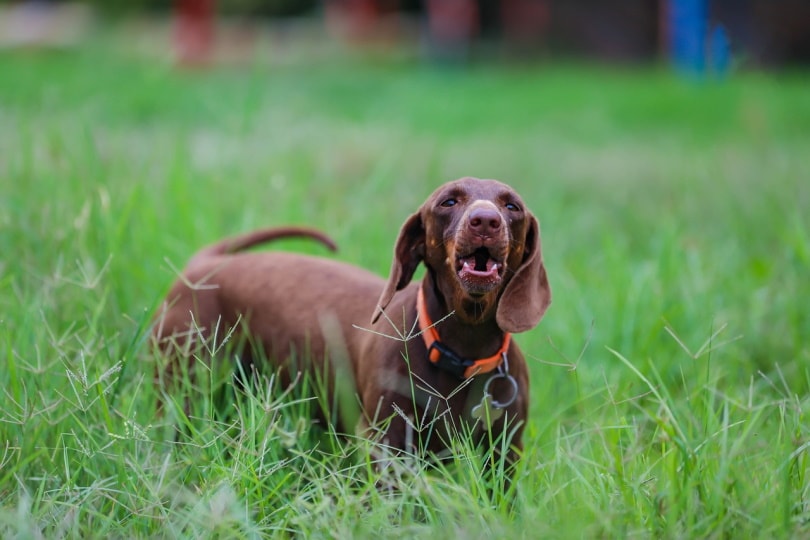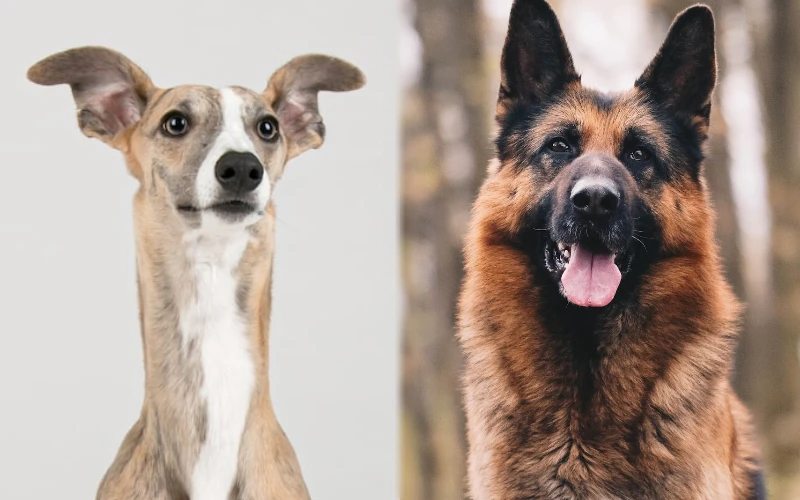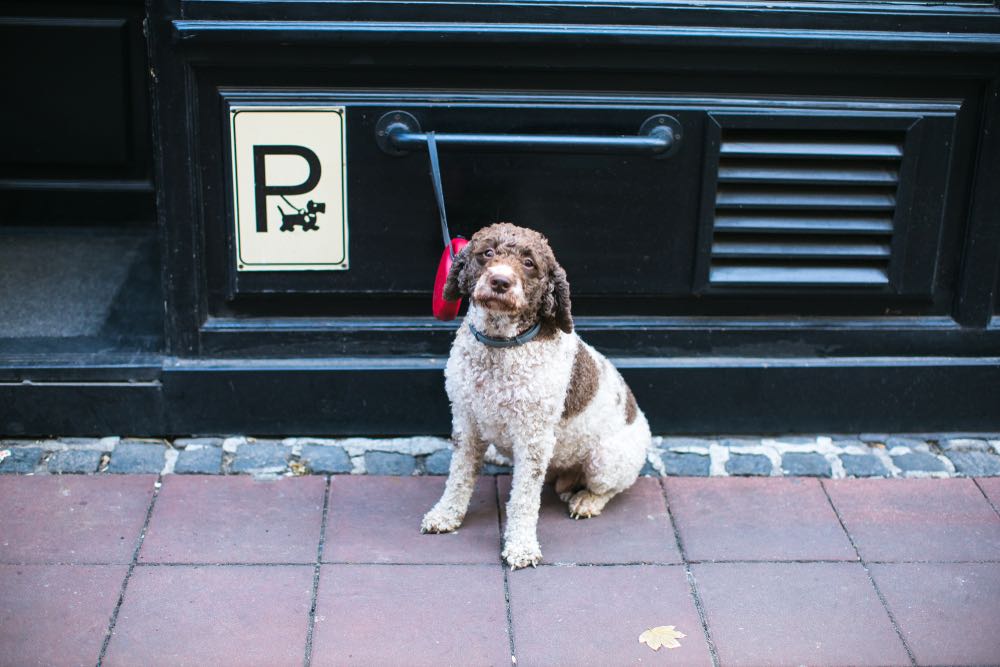How Long Can a Corn Cob Stay in a Dog’s Stomach? What to Know!
By Lorre Luther
Updated on
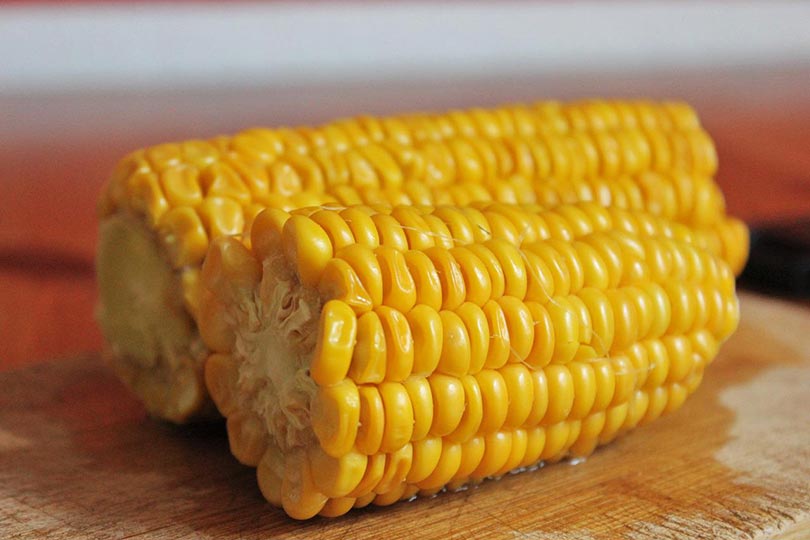
Dogs love human food, and corn on the cob seems to attract dogs like bees to their favorite flowers. If your beloved four-footer got wild at your neighbor’s barbeque and scarfed down a helping of corn on the cob, you might be wondering what to do. Or, more precisely, you might want to know how long the corn cob your dog ate can stay in their stomach. Unfortunately, while loose corn is perfectly safe for dogs to eat in moderation, corn on the cob is a hazardous food for dogs.
While it can take up to 72 hours for dogs to eliminate food they’ve eaten, don’t count on this happening with a corn cob. The cob’s tough fibrous texture makes it virtually impossible for dogs to digest. If it’s too big to pass into your pup’s intestines, the cob will remain in your dog’s stomach, where it will cause inflammation and irritation until it’s surgically removed.
If your pup has managed to chew the cob into just the right size, it can pass from the stomach into the intestines, where it can cause a blockage that’ll need surgery to relieve.1 If your dog has eaten a corn cob, reach out to your veterinarian immediately for further guidance and be ready to take your canine friend in for an emergency visit. If you start to see any signs of an intestinal blockage, such as lethargy, vomiting, or appetite loss and it is possible your dog ate a cob, let the vet know.
What Information Does My Veterinarian Need?
If your dog eats corn on the cob, the first thing you should do is make sure they can’t get into anything else. Next, try to determine how much they ate. Call your veterinarian immediately and let them know when your dog ate the cob and approximately how much was ingested.
Your veterinarian will help you determine what to do next. While it may seem logical to do nothing in the hope that the corn cob will pass naturally on its own, waiting might actually cause more trouble by allowing the cob to move further down your dog’s digestive tract. In many cases, the sooner you begin treatment, the better, but your veterinarian is in the best position to make this determination. Don’t waste time trying to get your dog to vomit or engaging in home remedies this can be more dangerous.
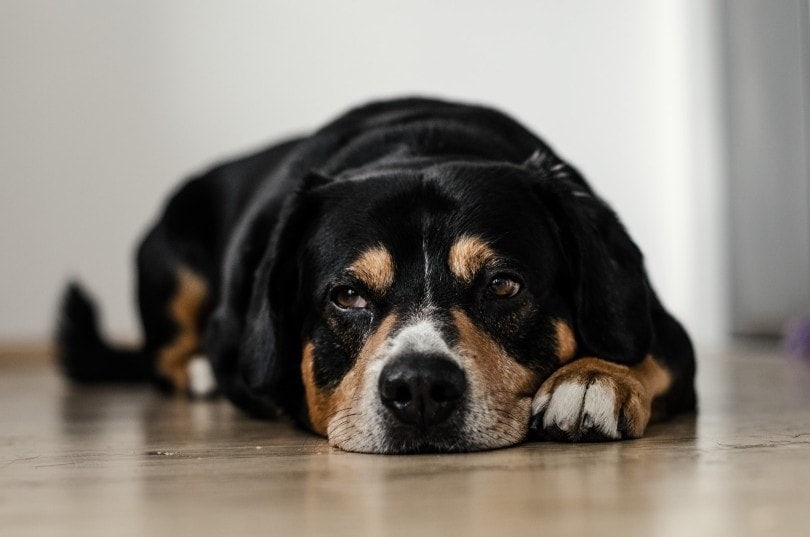
Is It Safe for My Dog to Eat Corn?
Absolutely, as long as you remove it from the cob first. De-cobbed corn is totally safe for dogs to consume. It’s a great source of protein, antioxidants, carbohydrates, fat, and vitamins. It also delivers fiber which is fantastic for your dog’s digestive health. It’s the cob that causes serious problems. It’s fine if your dog takes a few bites of corn that have been removed from the cob.
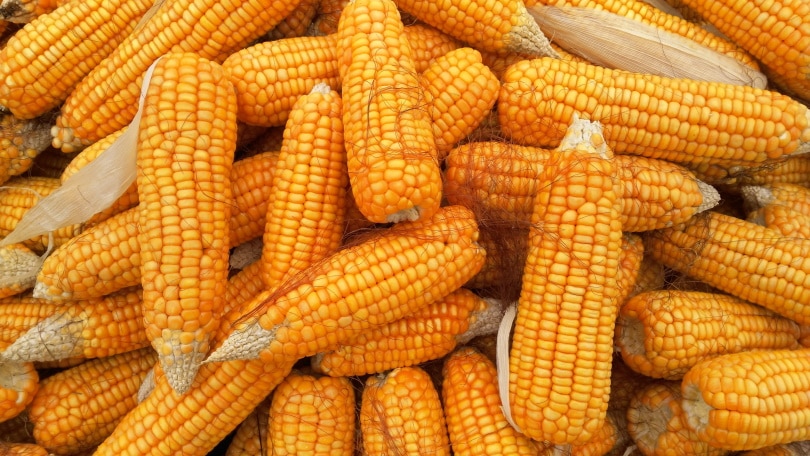
Final Thoughts
Remember that dogs need to eat a healthy balanced diet, and that usually involves limiting the amount of human food you let your dog eat. Giving your dog too much butter, which contains tons of saturated fat, and salt can lead to serious problems like obesity, arthritis, diabetes, and heart disease. So, while an occasional treat of human food is fine, it’s best to stick with dog food, which is formulated to meet your canine’s nutritional needs.
Featured Image Credit: javallma, Pixabay



